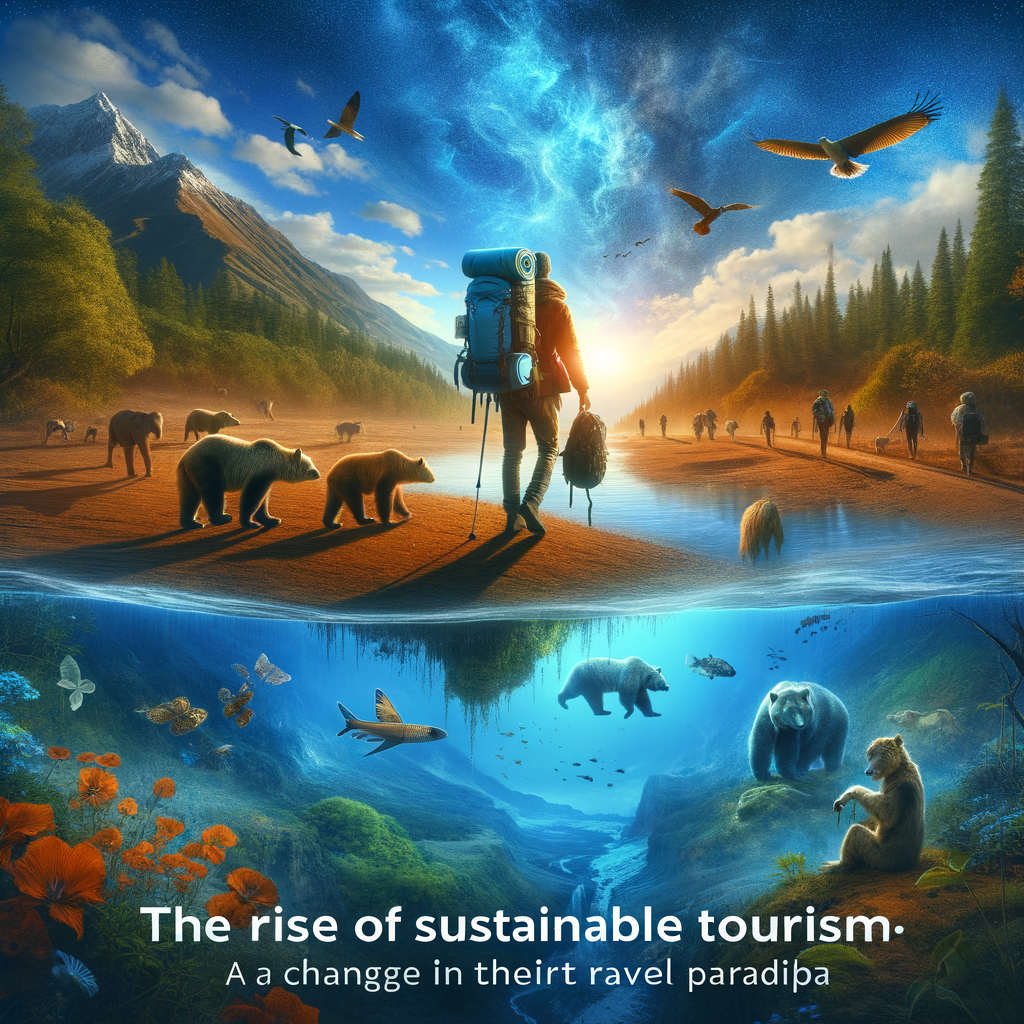Physical Address
304 North Cardinal St.
Dorchester Center, MA 02124
Physical Address
304 North Cardinal St.
Dorchester Center, MA 02124

The global tourism industry has witnessed a significant shift towards sustainability in recent years. This paradigm change, known as sustainable tourism, focuses on minimising the negative impacts of travel and promoting positive contributions to the natural, social and economic environment. The rise of sustainable tourism signals a new era in travel where tourists are more conscious about their environmental footprint and are keen to make positive contributions to the communities they visit.
Sustainable tourism emerged as a response to the growing concerns over the detrimental effects of mass tourism on local cultures, economies, and environments. Over-tourism, pollution, habitat destruction and cultural erosion are just some examples of these adverse effects. As such, there was an urgent need for a more responsible approach to tourism that respects both the environment and local communities.
This new form of travel is not solely about reducing harm but also about actively contributing positively to destinations. It involves understanding the needs of local communities, preserving biodiversity, supporting local economies and respecting cultural heritage.
Several factors have contributed to the rise of sustainable tourism. Firstly, increasing awareness about climate change and environmental degradation has motivated travellers to seek out eco-friendly options. Furthermore, advancements in digital technology have made it easier for travellers to research sustainable practices and choose responsible travel companies.
Secondly, there is a growing recognition among governments and businesses that sustainable practices can boost economic growth while protecting natural resources. Many countries have implemented policies promoting sustainable tourism as part of their national development strategies.
Social media platforms have played a significant role in promoting sustainable tourism by providing a platform for sharing experiences and spreading awareness. Influencers and travel bloggers often highlight eco-friendly accommodations, local businesses, and conservation projects, encouraging their followers to make sustainable choices.
Sustainable tourism encompasses a wide range of practices. These include eco-tourism, where tourists visit protected areas to learn about the environment and contribute to its preservation; community-based tourism, which involves visitors participating in local activities and supporting local economies; and cultural tourism, where travellers engage with local cultures in a respectful manner.
Many travel companies are also adopting green practices such as reducing waste, conserving water and energy, using renewable energy sources, supporting local suppliers and implementing carbon offset schemes. Hotels are increasingly offering ‘green’ rooms with energy-efficient appliances and recycled materials, while tour operators are designing itineraries that minimise environmental impact and promote cultural understanding.
A key aspect of sustainable tourism is its positive impact on local communities. By promoting fair trade practices, providing employment opportunities and contributing to community development projects, sustainable tourism can help alleviate poverty and improve living standards.
Looking ahead, the future of sustainable tourism appears promising. As more travellers become aware of the importance of sustainability and demand responsible travel options, businesses will continue to innovate in order to meet these expectations. Moreover, governments will likely play an increasingly active role in facilitating sustainable tourism through policy-making.
In conclusion,